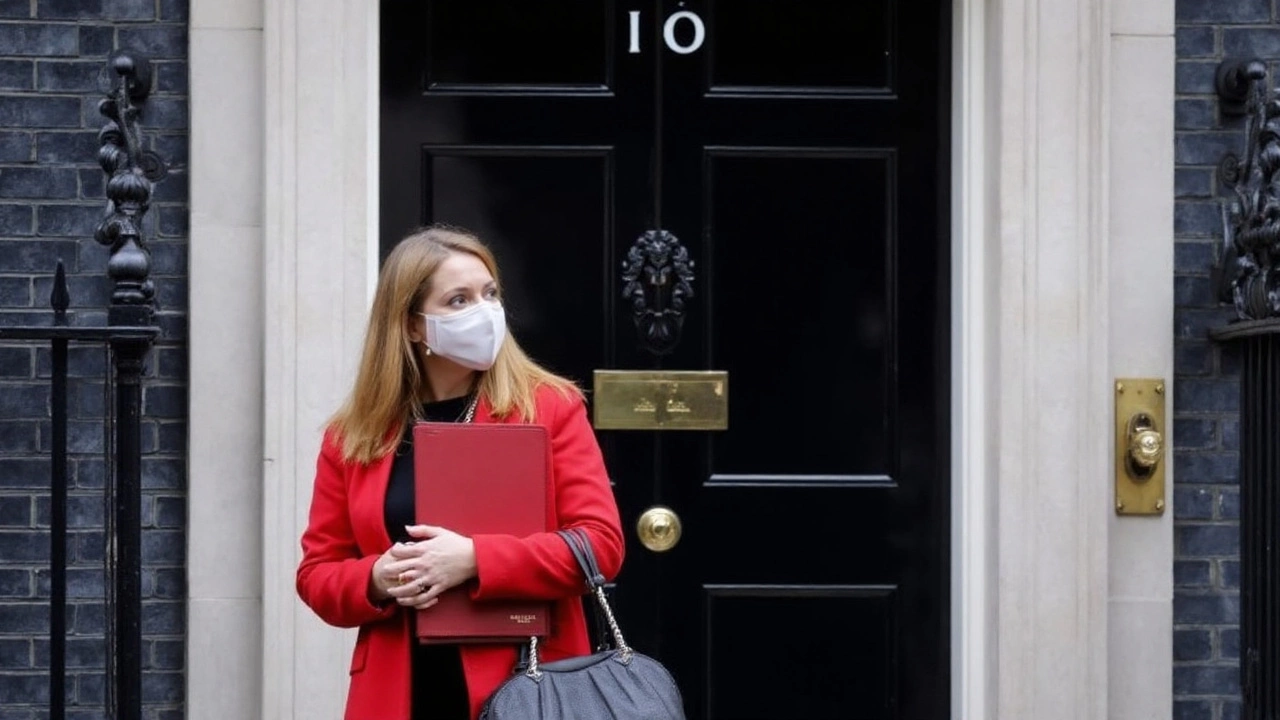A fall from the heart of power
Angela Rayner resigned as Deputy Prime Minister and Housing Secretary on 5 September 2025, a dramatic end to a week that began with a tax story and snowballed into a full-blown political crisis. On 28 August, the Telegraph alleged she had arranged her property affairs in a way that slashed the stamp duty bill on a new seaside flat in Hove by around £40,000. Days later, the paper reported that she had also used funds tied to her disabled son’s trust in a related transaction. By Thursday, she was out of office.
Rayner insists she acted on legal advice at every stage. She referred herself to the independent ethics adviser, Sir Laurie Magnus, admitted she had “made a mistake” in how she paid stamp duty, and said her intention was to follow the rules. Her conveyancer, Verrico & Associates, pushed back too, saying they never give tax or trust advice and felt like “scapegoats”. Behind the scenes, Labour figures briefed that a “get Angela” campaign had been running for weeks — and that her exit was not just about tax, but power.
This wasn’t just a Westminster drama. It reaches into complex corners of UK tax law that most people only face once in a lifetime, if at all. It also hits Labour where it hurts: credibility on tax compliance and internal unity just as ministers try to show steady hands in government. Those inside the party who saw Rayner as the anchor of its left wing now wonder who carries that torch.
Here’s how the story unfolded — and what the law and politics behind it look like once you strip away the noise.
28 August 2025: The Telegraph reports that Rayner removed her name from the deeds of her constituency home weeks before buying a Hove flat, potentially lowering her stamp duty bill by reducing how many properties she was treated as owning.
3 September 2025: The paper adds that money linked to an NHS compensation trust for her disabled son featured in related transactions. It says she sold a 25% stake in her Ashton-under-Lyne house to her son’s trust in January 2025 for £162,500.
Early September: Verrico & Associates say they handled conveyancing but gave no tax or trust advice, and refer clients to tax specialists.
5 September: Rayner refers herself to the ethics adviser, acknowledges an error in the stamp duty she paid based on legal advice, and resigns from government. Chancellor Rachel Reeves and Education Secretary Bridget Phillipson publicly back her personally. Keir Starmer keeps his options open until the end, then moves ahead with a reshuffle.
For Labour, the optics are rough. Ministers have spent months promising clean government and respect for the rules. Now one of their biggest names has stepped down over a tax controversy, and the post-resignation reshuffle looks, to some, like a plan long in the making. For the opposition, the attack line writes itself: if ministers can’t keep their own tax affairs straight, why should voters trust them to run the country?
Rayner’s exit also creates a hole in the government’s housing agenda. She was the face of plans to speed up building, unblock planning, and push renter protections. Civil servants can keep drafting, and another minister can pick up the brief, but political capital is personal. Any reboot will need a new champion — and soon.

What the tax row is actually about
At the core is stamp duty land tax (SDLT). When you buy a property in England, you pay SDLT at rates that scale with the price. There’s also a 3% surcharge if you buy an “additional dwelling” — essentially if you already own another residential property you aren’t replacing as your main home. That surcharge can add tens of thousands of pounds to the bill on higher-value purchases.
The Telegraph’s first story said Rayner removed her name from the deeds of her constituency residence shortly before buying a Hove flat. If you’re not on the title, in many cases HMRC treats you as not owning that property. That can mean the new purchase isn’t classed as an “additional” home, so the 3% surcharge doesn’t apply. That’s where the reported £40,000 saving comes from.
But there’s a catch. SDLT isn’t just about paperwork. HMRC looks at the substance: do you still have a beneficial interest, or a right to benefit from the property? Are you effectively still an owner even if the Land Registry says otherwise? And did you truthfully declare which property was your main residence to the right authorities? The Telegraph highlighted apparent contradictions between what was told to different councils. Those details matter, because if your story changes depending on who’s asking, HMRC will ask why.
Then came the second layer: the trust. According to the reporting, Rayner sold a 25% share of her Ashton-under-Lyne home to her son’s trust for £162,500 in January 2025. The trust was said to have been funded by NHS compensation for her disabled son. The allegation is not that trusts are illegal — they’re common in family and care settings — but that the optics and mechanics here deserve scrutiny. Was the price fair market value? Were the trustees independent and acting for the sole benefit of the beneficiary? Did any part of the arrangement leave her with control or benefit inconsistent with what was declared elsewhere?
Trust law is strict about duties. Trustees must act in the beneficiary’s best interests and avoid conflicts. Transactions with connected parties — like a parent — aren’t automatically improper, but they attract attention. If the trust bought a quarter of a house from the parent at a fair price as an investment, that’s one thing. If the deal effectively funded the parent’s new flat while leaving the trust exposed to risk, that’s another. Those are exactly the kinds of facts investigators will probe.
Rayner’s defence is straightforward: she took legal advice not once but multiple times before buying the Hove flat, and she paid the stamp duty she was told to pay. Her conveyancer says they never offer tax or trust advice and send clients to specialists in those fields. That matters because, in tax law, a “careless” error made despite seeking advice can still be penalised — but the penalties are lower than for deliberate wrongdoing.
So what might the tax consequences be? Tax policy specialists say HMRC typically looks at three things: was there an underpayment, how did it happen, and how did the taxpayer respond once it came to light? If HMRC decides the surcharge should have been paid, they’ll seek the tax, plus interest. There can also be a penalty for an inaccurate return. For “careless” errors, penalties usually range from 0% to 30% of the tax underpaid; for deliberate errors, they’re higher. Disclosures prompted by press scrutiny often land in the middle of the careless range. That’s why independent experts put a rough penalty at around £8,000 on a £40,000 shortfall, with scope to go up or down depending on the facts.
None of this proves intent. HMRC’s job is to collect the right tax, not to judge political optics. But politics does care about the optics. Voters don’t parse beneficial interests or surcharge tests. They see a senior minister accused of slicing a tax bill by moving names on deeds and dealing with a family trust. That’s a hard sell, especially when the same minister speaks about fairness and rules.
On top of the tax question sits the Ministerial Code. It says ministers must maintain high standards, avoid conflicts of interest, and be honest in their declarations. The independent ethics adviser can look at whether declarations were complete and whether ministerial conduct meets those standards. The adviser reports to the Prime Minister, who decides on sanctions. By referring herself, Rayner invited that scrutiny. By resigning, she spared the government the sight — and political grind — of a protracted inquiry into a sitting Deputy Prime Minister.
There’s also a procedural point about “main residence” claims. For SDLT, whether a home is “main” isn’t just where you say you live. It’s a fact pattern: how much time you spend there, where your family is based, where you’re registered for voting and council tax, and more. For the 3% surcharge, if you sell your former main residence and buy a new one on the same timeline, you can avoid the surcharge or claim a refund within a set window. If, however, you remove yourself from ownership of your existing home shortly before buying another, HMRC may ask whether the change was substantive or cosmetic.
What will investigators look at? Expect questions like these:
Did Rayner retain any beneficial interest in the constituency home after her name was removed from the deeds?
Were council tax, electoral roll, and other records consistent about which property was the main residence at each point in time?
Was the 25% sale to the trust at a fair market price, and were the trustees independent and properly advised?
Did the trust’s investment align with the best interests of the beneficiary, and was any benefit to Rayner incidental or material?
Were the stamp duty calculations properly documented by tax professionals, and were any errors corrected promptly once identified?
None of those answers are public yet. HMRC doesn’t comment on individual cases, and the ethics adviser’s processes are largely confidential until a report is issued, if one is issued at all. What we do know is that a minister’s survival often hinges not just on the facts, but on momentum. Once a story like this becomes the daily drumbeat, the clock starts ticking.
Inside Labour, the fallout is about more than tax. Rayner’s base sees her as the most prominent left-of-centre voice in the cabinet, someone with a different political accent to the party leadership. Sources close to her believe the reshuffle that followed her resignation was teed up in advance — proof, they say, that the leadership was ready to move on. Allies of Keir Starmer counter that the government needs stability, and that every minister, no matter how senior, lives under the same rules.
The public backing from Chancellor Rachel Reeves and Education Secretary Bridget Phillipson kept Rayner afloat for a day or two. The Prime Minister’s refusal to pre-judge whether he would sack her if the code was breached left the door open for a managed exit. Once the resignation landed, the tone shifted to getting on with the job.
For housing policy, the timing is awkward. Rayner had made housing a political priority, with promises to push new supply, clear planning backlogs, and tackle standards in the rental market. Those themes won’t vanish, but political ownership matters when it comes to fighting local opposition, corralling departments, and chivvying councils. Whoever takes over will inherit that agenda along with the bruises of the past week.
What happens next?
HMRC will decide whether any additional stamp duty is owed, and if so, the level of penalty and interest.
The ethics adviser will assess whether ministerial declarations and conduct met the Code’s standards. If a report is produced, it will go to the Prime Minister, who chooses the response.
Labour will fill the Housing brief and reorganise the cabinet. Eyes will be on who is promoted and whether the reshuffle shifts the party’s balance.
Rayner herself will decide her own future path in politics. The resignation was from government, not necessarily from public life.
There’s a legal track and a political track. On the legal side, the rules on SDLT and trusts are technical but well-established. If tax is due, it gets paid. If a penalty is due, it gets assessed. On the political side, perception is often the real verdict. A government that came in promising clean hands now carries a high-profile resignation over tax. The opposition will keep hammering that point. Labour’s answer will have to be unforgiving competence — and some unflashy wins — to move the story on.
For now, one of the most recognisable figures in the cabinet is gone, and the most contentious questions are still open. The fine print will decide the tax case. The court of public opinion has already moved on.

